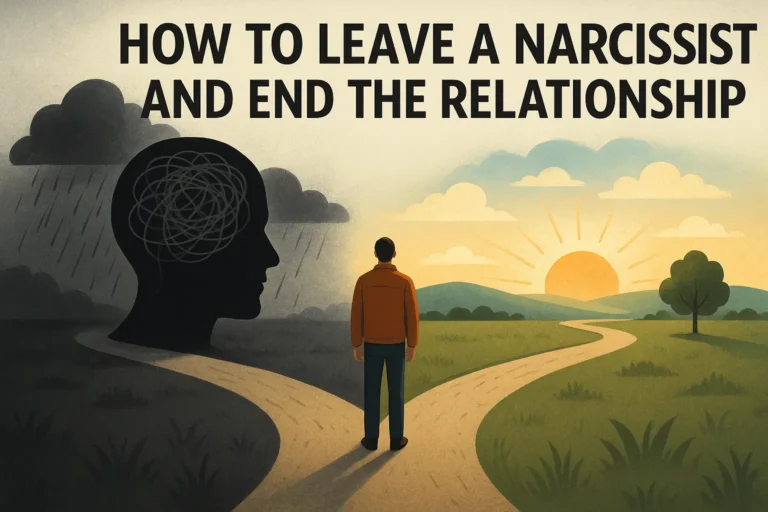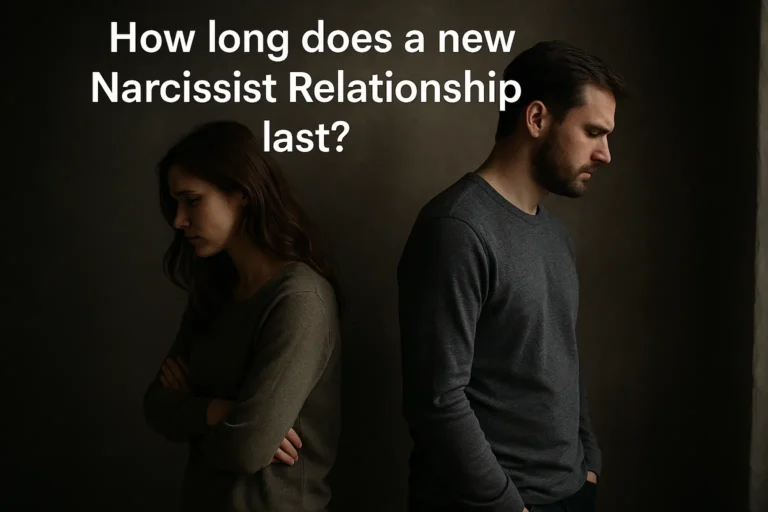Book Appointment Now
Why Does Someone Stay Married to A Narcissist?
This article explores the question of why someone stays married to a narcissist, despite the toxic and abusive nature of the relationship. It delves into the psychological, emotional, and social factors that contribute to this decision.
I will provide understanding and insights for both individuals directly affected by narcissistic marriages and those seeking to support them. It emphasizes the importance of approaching the topic with empathy and compassion.
If you have a friend or family member in that kind of relationship, it’s not for you to judge or question them. This article is for you to also understand that their reasons for staying are beyond your understanding and they are valid. If you were in their shoes, you would also stay in the same relationship. That’s what compassion is all about — putting yourself in someone else’s shoes and looking at things from their perspective.
The ultimate goal is to create a compassionate environment where victims of narcissistic abuse feel safe and supported on their journey toward healing and liberation.
So, what are some of the reasons why someone stays married to a narcissist?
1. Emotional Attachment
When you’re in a relationship with someone for a long time, you develop an intimate connection and attachment to that person. Also, due to your unhealed wounds, you become trauma-bonded to the person.
Trauma bonding is when your unhealed traumas find safety in a familiar, abusive environment. It’s like being addicted to a drug. Even if you know it’s ruining your life, you keep going back to it because it provides highs and lows and feels familiar. You become comfortable in that environment, and that’s why people stay.
2. Fear and Intimidation
The narcissist or abuser may threaten to ruin your life, take away your children, or even send you to jail. They may manipulate the system if they hold influential positions. They could also threaten to take away your job, especially if your partner is your employer. These manufactured fears and even real fears make it hard for someone to leave because they make your life more difficult. You may feel it’s better to stay and endure than to face the consequences of leaving.
3. Financial Dependence
In most relationships, there is usually that one main breadwinner who provides for the family. If you are financially dependent on your partner and don’t have the means to fend for yourself or your children, it becomes challenging to leave. Staying in the relationship feels like the best option for survival’s sake.
4. Low Self-Esteem
When you’ve been gaslighted, called names, verbally abused, and traumatized in the relationship, your self-esteem takes a hit. You no longer believe in yourself or feel worthy of a healthy relationship. You feel comfortable in the abusive environment because you have lost faith in your ability to handle life’s challenges on your own. You believe you need someone else to navigate life, and staying in the relationship reinforces that belief. You believe that you have no value at all and that an abusive relationship is what you deserve. The relationship also weakens you and strips off that ability to make your own decisions.
5. Co-parenting Concerns
If you have children with your partner, the process of divorce, negotiating a parenting plan, and dealing with a manipulative partner can be quite complicated. You may choose to stay in the relationship for the sake of the kids, as you feel that the need both parents in their lives.
6. Cultural and Religious Concerns
Cultural and religious concerns are significant factors, particularly in certain societies. The belief that marriage is a permanent institution and divorce is frowned upon can make it difficult to leave. Cultural conditioning and religious beliefs can create a mindset where leaving the marriage is seen as a sin or a betrayal of cultural norms. Challenging these beliefs is not easy, as the fear of societal judgment and punishment may keep you trapped in the relationship.
7. Feeling of Investment in the Relationship
Actually, a relationship is just like any other kind of investment because you invest your resources, emotions, and assets. For example, you may have built a home together or have a business together. You also have shared memories and interests. You have truly invested in the relationship, and if you have been in that relationship for 10 years, it becomes even more difficult to leave.
When you view a relationship as an investment, you don’t want to lose that investment. It’s similar to the sunk cost fallacy, where you have invested so much that even if the relationship is toxic and not working, you feel inclined to stay because you don’t want to start over or because you have invested so much time. For instance, you may think, “I have spent 20 years with this person, I can’t just leave.” You justify staying in the relationship despite the toxicity because you don’t want to lose the investment you have made. You rationalize the abuse and ignore your own well-being because you don’t want to let go of what you have invested in.
Conclusion
It’s important to note that staying in a hurtful environment is not beneficial for you. You don’t have to endure it. You can choose to break free and build the courage to leave. Other people have left such relationships and are now thriving. Nothing good will come from staying in a toxic environment, especially when your partner doesn’t care about you or show any intention to change their behavior. It’s essential to work on building inner strength and resources to find the courage to leave. I have previously written an article on how to find the strength to leave a toxic relationship (find it here)
Always remember that you deserve better. All the fears and intimidations can be overcome, but you have to act and remind yourself that you deserve a better life. A life with meaningful connections, respect, and people who treat you well.
Lastly, if you have a friend or sibling in a toxic relationship, be compassionate towards them. Don’t burden them with name-calling or judgment. It’s difficult to leave such situations due to the reasons I’ve mentioned. Listen to them and provide help when they ask for it. Remember, they are not stupid; they need support and understanding.
Note from the Author
If you’re ready and you’d like my help with healing, finding peace in life and breaking free from these subconscious patterns for good (in less than 2 months) using Mind Shifting, then you can book a FREE BREAKTHROUGH CALL with me HERE. Happy healing 💙💙. Feel free to share and comment! Use this information with caution, it comes from my own thoughts, experiences and research😊.







